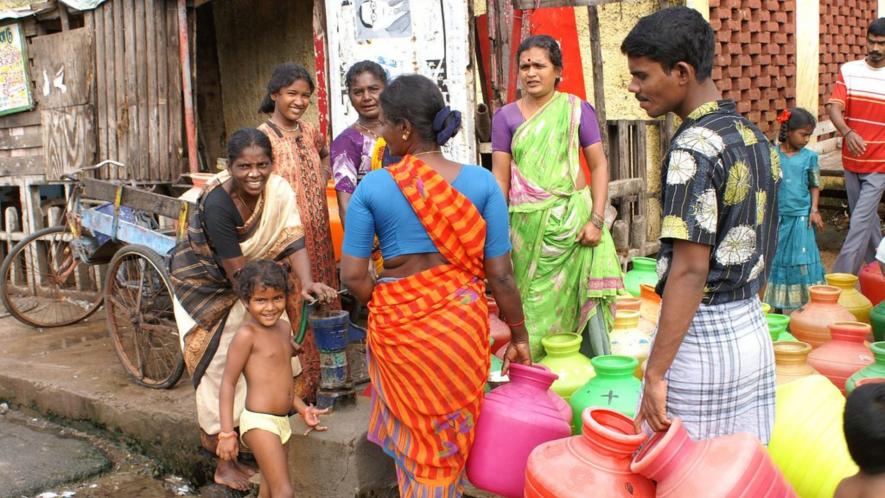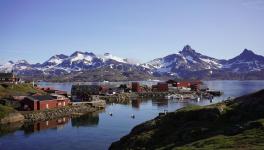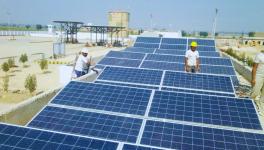Global Water Crisis Looms Large due to Freshwater Ecosystem Degradation

Image Courtesy: Flickr
Delhi: “Water, our planet’s lifeblood, and the ecosystems that store and supply it — rivers, lakes, wetlands and aquifers — have been consistently undervalued. This oversight exacts a profound toll: a water crisis that corrodes human well-being and jeopardizes our planet’s health. The realities are stark: hundreds of millions lack access to clean water, billions lack proper sanitation, and water-driven risks imperil food security and livelihoods. Nearly three quarters of recent disasters have been related to water,” wrote Kirsten Schuijt, the director general of WWF (World Wide Fund for Nature), in a foreword of a report published by WWF, and titled “The High Cost of Cheap Water”.
The WWF report assesses the annual economic value of water and freshwater ecosystems and how their degradation due to human activities poses challenges for economies, food security and planetary health. Its estimation suggests that natural water resources account for a hefty $58 Trillion Economic Value, which is equivalent to 60% of the global GDP (Gross Domestic Product). But, human activities have been spiralling down the freshwater ecosystems globally, threatening the economic value as well as the ‘irreplaceable role they play in sustaining human and planetary health’.
The world has lost 70% of its wetlands since 1970, and the wildlife populations in freshwater have dropped by a staggering 83%. This has an impact on people as well—water shortages have increased, coupled with food insecurity, the report says. Rivers, lakes and other freshwater systems have faced extreme drought and floods along with increasing pollution for which food sources like freshwater fisheries have declined severely, WWF says in its report.
“We need to remember that water doesn’t come from a tap – it comes from nature. Water for all depends on healthy freshwater ecosystems, which are also the foundation of food security, biodiversity hotspots and the best buffer and insurance against intensifying climate impacts. Reversing the loss of freshwater ecosystems will pave the way to a more resilient, nature-positive and sustainable future for all,” commented Stuart Orr, the Global Freshwater lead of WWF, in a statement, highlighting the immediate need for global actions to protect and restore freshwater ecosystems.
The report analysed the direct and indirect economic benefits of water resources. The direct economic benefits, including household water consumption and irrigation for agriculture and industries, are estimated to account for $7.5 trillion annually. As far as the indirect or unseen economic benefits are concerned, the report estimated a much higher amount--$50 trillion annually. These include purifying water, enhancing soil health and storing carbon (remember sea water stores carbon), and protecting communities from extreme floods and droughts.
Two-thirds of the largest river systems of the world are no more free-flowing and the wetlands are continuously being lost three times faster than the forests worldwide. Water extraction at an unsustainable amount, pollution by industrial and sewage waste, alteration to the natural flows of rivers and climate change are impacting the world’s freshwater ecosystems.
With this, billions of people worldwide are left without access to clean water and sanitation and growing risk for agriculture and food security. According to an estimation, around 46% of the global GDP is likely to come from areas facing high water risk. As of now, this amounts to 10%.
The WWF report cited the example of the US and Mexico, where the Rio Grande or the Rio Bravo (RGRB) is drying up because of excessive human water extraction. Climate change further aggravates the water level as rising temperature dries up the water sources. WWF suggests that in the absence of immediate action, there could be a 25% loss of river flow in parts of the RGRB basin by 2050. This will bring devastating consequences for people, wildlife as well as economies. (RGRB is one of the principal rivers in the United States and Mexico. In the United States, the river is called ‘Rio Grande’ and in Mexico it is called ‘Rio Bravo’.
WWF has called for urgent actions to protect the water resources in its report. It calls for governments, businesses and financial institutions to create an urgent plan for building sustainable water infrastructure. It also cautions against the sole focus on building infrastructure while avoiding the source of the problem, which is degraded rivers, wetlands, and aquifers; WWF says that doing this will not solve the imminent water crisis, especially when the climate crisis deepens.
The report suggests that the key to success lies in recognising the freshwater ecosystem as a natural infrastructure and directing investments to reverse the continuing loss of freshwater ecosystems.
Get the latest reports & analysis with people's perspective on Protests, movements & deep analytical videos, discussions of the current affairs in your Telegram app. Subscribe to NewsClick's Telegram channel & get Real-Time updates on stories, as they get published on our website.
























